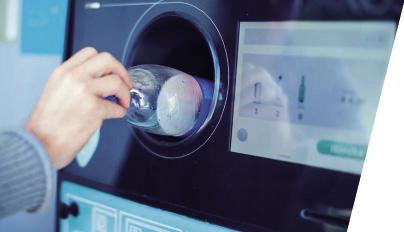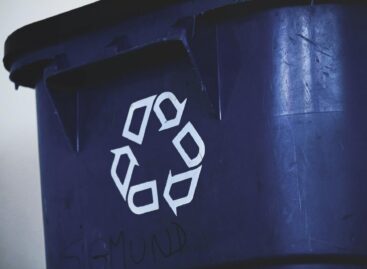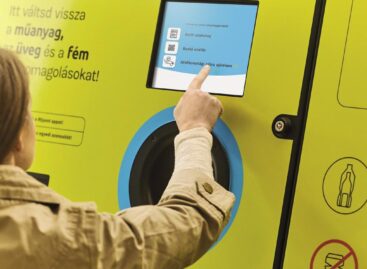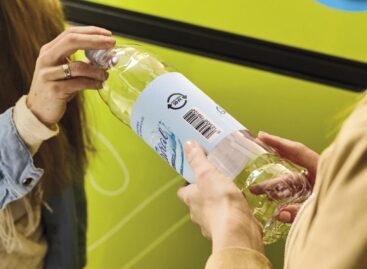Nationwide return system for drinks packaging is ready to launch
Soon a nationwide return scheme for single-use beverage containers will be launched, and is expected to result in the return of approximately 3 billion cans, PET and glass bottles per year.
This article is available for reading in Trade magazin 2023/12-01
Since 2019 the beverage and retail consultants of IFUA Horváth have been actively involved in the process of building the new system. On 10 October 2023, at their second webinar on the subject, they presented the most important changes that will occur probably from January. Bálint Varga, head of retail and consumer goods and competence centre at IFUA Horváth, and the company’s managing consultant Enikő Bárdos were the speakers at the online seminar.
Single-use packaging also becomes returnable

Bálint Varga
F&B and retail expert
IFUA Horváth
In Hungary Mol’s subsidiary, Mol Hulladékgazdálkodási Zrt. (MOHU) will be the concession holder doing the waste management for the next 35 years, including overall system management, and waste collection and pre-treatment activities – with the involvement of subcontractors if necessary. Drinks packaging can be reusable or single-use. Reusable packaging has always been returnable, but single-use beverage containers will only be subject to a return fee from 1 January 2024. According to the EU recovery targets, it will be possible to achieve recovery rates of over 90% in the aluminium, PET and glass categories in the coming years.
The new systems

Enikő Bárdos
lead consultant
IFUA Horváth
The Extended Producer Responsibility (EPR) system is being introduced to create a circular economy model. In line with EU directives, the basic principle of EPR is that the first domestic producer (who can be either a manufacturer or an importer) is responsible for organising the collection and transfer for recovery at the end of the life-cycle of products. The return system for single-use beverage packaging is called Deposit Return System (DRS). Every year 3-3.5 billion DRS beverage containers are put on the market in Hungary, weighing nearly 160,000 tonnes. Milk-based products are exempt from the return system that works with 100ml-3l drink containers, as their collection and pre-treatment isn’t yet feasible due to their high protein content.
For FMCG stores bigger than 400m² it will be mandatory to set up return points, and the return vending machines (RVM) are provided by MOHU. As for shops smaller than this, joining the system is voluntary, with a RVM for high turnover shops and manual return service for low turnover stores. In municipalities with more than 1,000 inhabitants, the establishment of a drinks packaging return point is compulsory if there is no obligatory or voluntary commercial unit. The details of the HoReCa and e-commerce collection are still to be worked out, but it seems that HoReCa units can return empty beverage containers to any collection point.

Returnable products will mostly include single-use products
Costs of joining the system
Under the DRS scheme, manufacturers pay two main types of fees to MOHU, the joining fee and the service fee, and they transfer the deposit return surcharge paid by customers – this sum is HUF 50 as per the draft regulation. The system joining fee (HUF/unit of product put on the market) is paid by those who first put the product on the market to MOHU. This fee will be differentiated by type of packaging material and paid quarterly for 5 years. The service fee (HUF/unit of product put on the market) will also be paid by those who first put the product on the market. This system will be uniform at the beginning, with plans to differentiate by product type in later years; this sum will also be paid quarterly.
DRS – marking and identification
The DRS system will be based primarily on EAN identification. Products with a deposit return fee will be identified by two elements, the logo and the EAN/GTIN code. Minimum sizes for the logo have been defined in the regulation. It includes the amount of the deposit return fee, which is HUF 50 for single-use products and determined by the manufacturer for reusable products. A marking guide is available on MOHU’s website, which gives detailed instructions on how to place both the EAN and the logo correctly on the beverage packaging.
In switching to the DRS system, there will be a transitional period until 30 June 2024. During this the products that don’t bear the DRS logo and the EAN will be allowed to be marketed.
Manufacturer responsibilities and risks
Switching to the deposit return system will involve complex processes and affect many business units at retailers and beverage companies. For instance at manufacturers it is the legal department that is responsible for signing a contracting with the concession holder and for the modifications of the contracts and GTCs on the customer side. Controlling, finance and accounting will do the simulation and planning of financial impacts and the development of DRS accounting and reporting processes. Besides other tasks, supply chain needs to register the products in MOHU’s DRS system, while procurement and category management are responsible for the retail re-listing of the entire assortment due to the EAN code change.
On the retailer side the planning and simulation of demand changes will also become a priority, as well as the retail re-listing of the entire assortment, the conversion to vending machines and the development of manual processes. //
Related news
2026: stricter EU rules and digital waste tracking
🎧 Hallgasd a cikket: Lejátszás Szünet Folytatás Leállítás Nyelv: Auto…
Read more >









